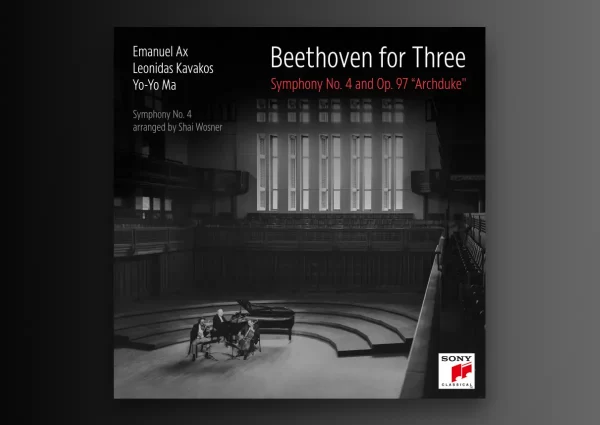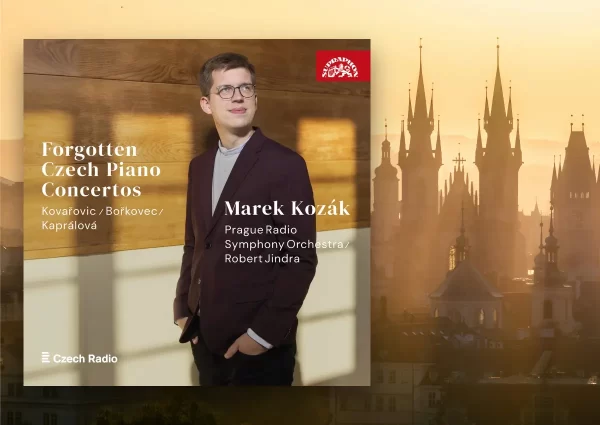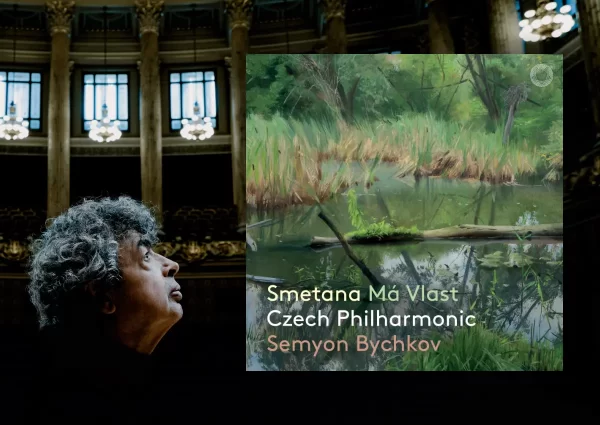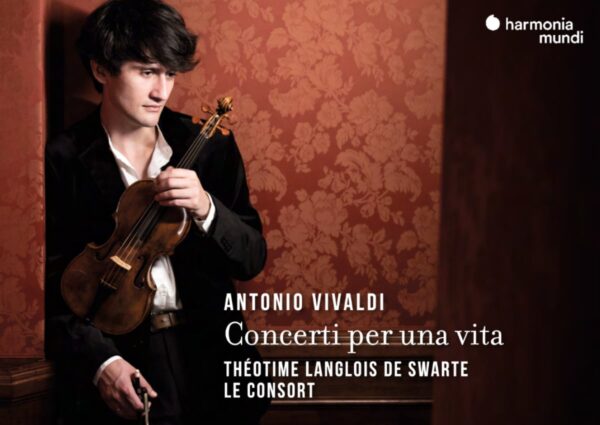As their previous, individual recordings prove, tenors Lawrence Brownlee and Michael Spyres are at home in the Bel Canto genre. On this album, the two present selections from Rossini’s operas, whose central roles thrive on collaboration in two very different lights: camaraderie and conflict.
All’idea di quel metallo (track 1) captures the opera buffa’s lightheartedness. Spyres is a convincing Figaro; the natural richness of his voice is already quite pleasing to the ear, but he goes further to establish a powerfully anchored presence. Brownlee, revisiting his debut role as Count Almaviva, has a lighter voice which floats above Spyres’ textures, especially in the faster moving sections. Doubts do sneak in, however, after an extended listen. There is some imbalance in the duet: focus gravitates toward Figaro instead of the dialogue. Part of it might be the perceivable difference in voice qualities, but it could also be a matter of control, especially in Brownlee’s runs – Certain notes of his jump unevenly, making him sound a bit skittish.
S’ella mi è ognor fedele (track 2) fares much better. In leggiero tenor context, Brownlee has a natural agility especially salient in the florid passages – light and clear, they come through nicely against the orchestral accompaniment. It is also evident that he approaches his phrasing with great care. A lovely decrescendo closes each line and he takes just the right amount of time before beginning the next. Not only does this create a consistency that was missing in the previous track, but it also exposes the lyricism of Rossini’s writing. Qual sarà mai la gioia (track 3) shows us Brownlee’s ability to switch convincingly into different fachs – taking on a lyric role in more of a middle register, his voice is vibrant yet supple. The only issues, I felt, arise in sudden transitions between registers. As was the case in track 1, some of the high notes seem to fly out of place or sound too harshly accented.
In the three arias from Otello, Spyres and Brownlee take on roles as rivals. Ironically, from the musical standpoint, I found this a more successful partnership. The two singers are on equal footing in contributing to the story’s dramatism: where Spyres is the despairing and impassioned Otello, Brownlee has a cynical edge to his voice as a convincing Iago. The duet that begins at 2:22 in Non m’inganno: al mio rivale (track 9) is a particularly nice highlight: though the words themselves portray the growing tension between the two characters, the delivery has an excellent synchronicity and resonant parallel harmonies.
Related Classical Music Reviews
- Review: Verdi – Otello – Kaufmann, Pappano (2020)
- Review: Vincerò! – Piotr Beczala, Tenor
- Review: “Anima Rara” – Ermonela Jaho, Soprano
- More opera reviews
The following Terzetto (track 10), overall, is a driven ensemble performance from the tenors and mezzo Tara Erraught. On a deeper listen, though, one might notice aspects that seem too consistent. The tight vibrato from both tenors, for instance, works effectively at first but starts to add a shaky, nervous quality to the performance. (We might look to the 1978 performance with Carreras and Fisichella for some comparison here.) The harmonic balance between the two tenors that was so beautifully calibrated in the previous track is also diminished here. Perhaps owing to a previously observed difference in timbre and power, Spyres seems to overtake Brownlee’s melodic line in the duet (3:38 onward).
The Scene from Armida (track 15) is a fine performance, ending the album with a note of friendship. Brownlee, Spyres, and Xabier Anduaga give us a welcome respite in their opening ensemble aria from the more virtuosic segments of the album. Spyres has a lovely solo that is both pensive and warm; when the full vocal ensemble enters, we clearly hear Rossini’s intricate contrapuntal textures. The orchestral accompaniment helps greatly as well, with the woodwinds adding delicate flourishes.
The liner notes provide a streamlined but helpful description of the operas as they relate to the album’s central concept. But as for sound engineering, a better balance is needed: The modestly-sized I Virtuosi Italiani gives some nice touches when the singers rest, but sometimes disappears into the background and lacks gravitas. Overall, though there are some setbacks in this recording, there is still much to be appreciated.

“Amici E Rivali” – Highlights from Rossini’s operas
Lawrence Brownlee – Tenor
Michael Spyres – Tenor
Tara Erraught – Mezzo-Soprano
Xabier Anduaga Tenor
I Virtuosi Italiani
Corrado Rovaris
Read more classical music reviews or visit The Classic Review Amazon store
Follow Us and Comment:
Get our periodic classical music newsletter with our recent reviews, news and beginners guides.
We respect your privacy.









